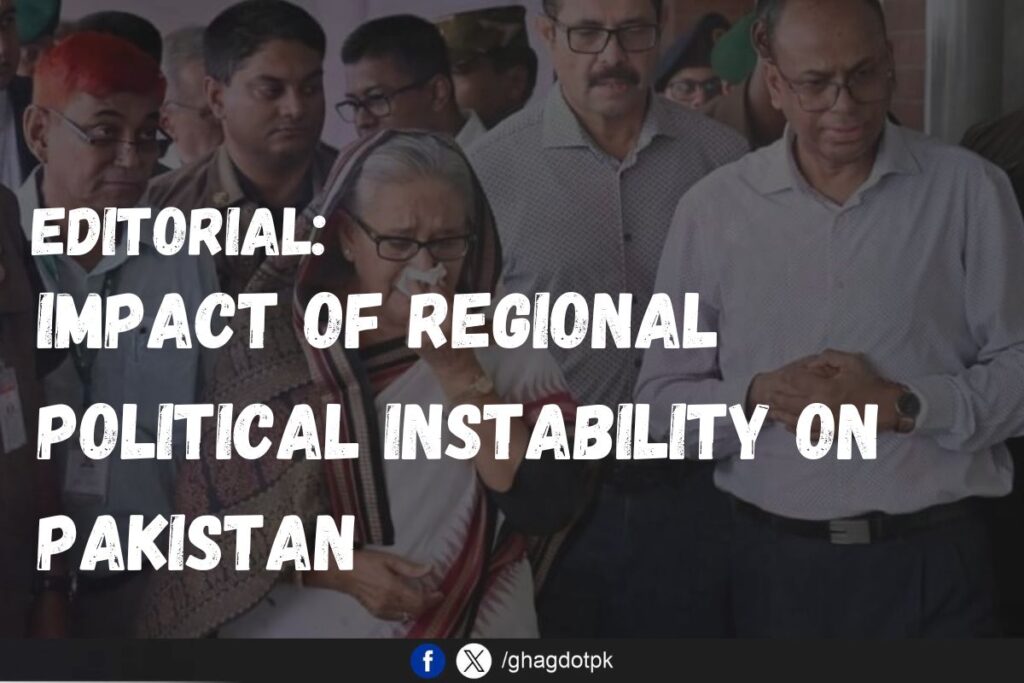Similar to other parts of the world, several important South Asian nations are dealing with unusual circumstances, disturbances, and security issues, and it appears that the world’s most populated region will have to deal with more difficulties. This region as a whole was seriously threatened by proxies, power imbalances, and border conflict and is therefore, as a whole plagued by economic issues. It is just a euphemism that India is a very strong country economically and politically or that Bangladesh has progressed a lot compared to Pakistan etc. Many of the claims are linked to multinational companies and media propaganda.
As an illustration, consider the recent unanticipated events in Bangladesh that involved opposition, government coercion, the fall of Hasina Wajid’s government, and her expulsion, which rocked regional and global capitals. If Bangladesh was such a strong country with so much progress, there is an urgent need to find out why the Prime Minister and leader, Sheikh Hasina Wajid, met such a horrible end.
Previously, similar circumstances also befell Sri Lanka. In the weeks that followed Bangladesh’s events, Pakistan also suffered in the form of the May 9 events, but unlike Hasina Wajid, the Pakistani state acted very patiently. Later, however, the party responsible for the May 9 events used every tactic available to it under the guise of digital terrorism, and a few months ago, the party also launched a regular campaign to portray Bangladesh as a “model” in comparison to Pakistan. The situation in which Sheikh Mujibur Rahman, who was dubbed a hero by someone other than the above party, taunted Pakistan, and the situation in which Sheikh Mujib’s daughter, Hasina Wajid, was forced to flee the country and seek refuge in India to save her life, has exposed Bangladesh’s establishment and so-called socioeconomic progress. After several months of portraying Sheikh Mujibur Rahman as a hero, his statue was demolished violently and unexpectedly.
It is an odd coincidence because on the day this move was performed, Pakistan hosted events related to Youm-e-Istehsal, to create a global awareness campaign for the Kashmir dispute. A lot of questions have been raised regarding Bangladesh’s founder and what happened to his daughter in the case of the family massacre. It is also very strange that, among other things, the Kashmir issue and related problems played a major role in the country’s establishment. On the same day, during a press conference commemorating Youm-e-Istehsal, Lieutenant General Ahmed Sharif Chaudhry, spokesman for the Pakistan Armed Forces, reaffirmed that Pakistan would continue its actions and policies to eliminate digital terrorism in addition to terrorism and mischief.
Resolving some of the region’s core territorial issues is critical to safeguarding its future. On the one hand, tensions between these countries are rising; on the other hand, the conflict in Ukraine and Iran-Israeli tensions have significantly threatened the two most critical areas. In such a context, Pakistan’s political leaders, the public, and the media bear a great obligation to prioritize political stability and political insight over political point scoring.






